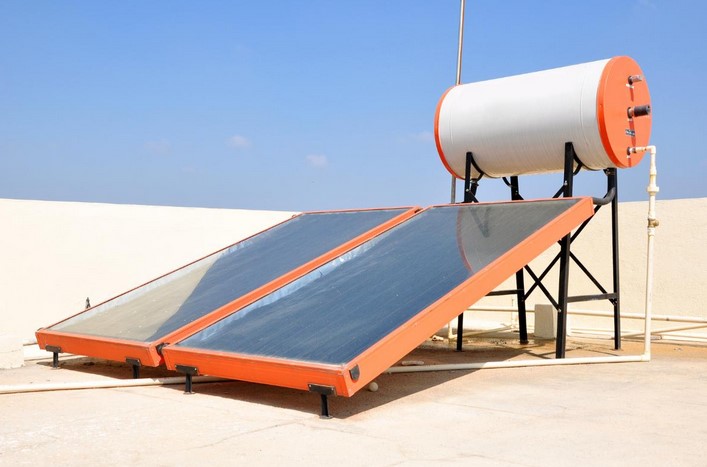
Source:https://biomassproducer.com.au
As the world moves toward more sustainable living practices, homeowners are increasingly turning to solar hot water systems to meet their water heating needs. These systems harness the power of the sun to generate hot water for use in daily household activities such as bathing, cooking, and cleaning. With concerns over rising energy costs, the environmental impact of traditional water heating methods, and the long-term benefits of renewable energy, solar hot water systems have become an attractive solution for eco-conscious homeowners. In this article, we will explore the workings of solar hot water systems, their advantages, and the key factors to consider when choosing the right system for your home.
How Do Solar Hot Water Systems Work?
Solar hot water systems utilize solar energy to heat water for domestic use, reducing the need for conventional heating methods like gas or electric water heaters. These systems consist of three main components: solar collectors, a storage tank, and a circulation system.
1. Solar Collectors
Solar collectors are typically mounted on the roof of a home and are designed to capture sunlight. These collectors can be either flat-plate collectors or evacuated tube collectors, each with its own set of advantages.
- Flat-Plate Collectors: These are the most common type of solar collectors. They consist of a large, flat panel with a dark-colored absorber plate that absorbs sunlight. The absorbed heat is transferred to a heat-transfer fluid, which flows through pipes in the collector and then to the storage tank.
- Evacuated Tube Collectors: These are more efficient, especially in colder climates, as they feature a series of glass tubes that create a vacuum to improve heat retention. This type of system is more effective at collecting sunlight in cooler conditions but can be more expensive than flat-plate collectors.
2. Storage Tank
The heated fluid from the solar collectors is then transferred to a storage tank, where the hot water is kept until it is needed. The storage tank usually has a well-insulated design to prevent heat loss and ensure that the water stays hot for as long as possible. The size of the storage tank depends on the number of people in the household and the expected hot water consumption.
3. Circulation System
In most systems, the circulation of the heat-transfer fluid is powered by a pump. In passive solar hot water systems, gravity or natural convection is used to circulate the fluid. In active systems, a pump is used to move the heat-transfer fluid through the system. The circulation system ensures that the heat generated in the solar collectors is efficiently transferred to the water in the storage tank.
In some systems, there is also a backup heating element (electric or gas) that ensures the water stays at the desired temperature, particularly during periods of low sunlight or high demand.
Benefits of Installing Solar Hot Water Systems
Switching to solar hot water systems offers a host of benefits, both environmentally and financially. As the world embraces renewable energy solutions, solar hot water systems stand out as an efficient and sustainable alternative to traditional water heating methods.
1. Reduced Energy Bills
Solar hot water systems can significantly lower your monthly utility bills by reducing your reliance on conventional electricity or gas to heat water. After the initial investment in the system, the cost of maintaining and operating the system is minimal, and homeowners can enjoy years of savings. In many cases, solar hot water systems can provide up to 70-80% of a home’s hot water needs, depending on the system’s size and climate conditions.
2. Environmental Benefits
Using solar energy to heat water reduces the demand for fossil fuels, which in turn helps reduce greenhouse gas emissions. Solar hot water systems are an environmentally friendly way to meet your water heating needs without contributing to air pollution or climate change. By choosing a solar water heating solution, you are making a positive impact on the environment and supporting the transition to a more sustainable energy future.
3. Increased Property Value
Homes equipped with solar energy systems, including solar hot water systems, often see an increase in property value. Potential buyers are increasingly looking for homes with energy-efficient features, and a solar hot water system is a strong selling point. Not only does it demonstrate a commitment to sustainability, but it also offers the prospect of lower utility bills, which can be an attractive feature for homebuyers.
4. Long-Term Savings and Low Maintenance
Solar hot water systems are designed to last for many years, with many systems offering warranties of 10 to 25 years. The lifespan of the system can be even longer with proper maintenance. Once installed, solar hot water systems generally require little maintenance, aside from occasional cleaning of the solar collectors to ensure they remain efficient.
5. Energy Independence
With solar hot water systems, you become less dependent on traditional energy sources, like natural gas or electricity, which are subject to price fluctuations. This energy independence can provide peace of mind and protection against future energy price hikes. Additionally, if the system includes a storage tank, you will always have hot water available, even during power outages.
Things to Consider Before Installing a Solar Hot Water System
While the benefits of solar hot water systems are clear, it’s important to consider several factors before installing a system to ensure it meets your needs and expectations.
1. Location and Sunlight Exposure
The efficiency of a solar hot water system depends on the amount of sunlight it receives. Homes located in sunny regions will benefit more from solar energy, but even in areas with moderate sunlight, solar systems can still perform well. It’s crucial to evaluate your roof’s orientation and tilt to ensure that it can receive optimal sunlight throughout the day. A professional installer can help assess the best placement for your solar collectors.
2. Household Hot Water Demand
The size of the solar hot water system you need depends on the hot water usage in your household. Larger families or homes with high hot water demand will need a larger system to meet their needs. It’s important to work with a solar professional to determine the correct size for your home, as an undersized system will not be able to provide enough hot water, while an oversized system may result in unnecessary costs.
3. Initial Investment and Incentives
While solar hot water systems can save you money in the long run, the initial installation cost can be significant. The price depends on factors like the size of the system, the type of collectors used, and the complexity of the installation. However, many regions offer incentives, rebates, and tax credits for installing solar energy systems, which can help offset the upfront costs. It’s worth researching local incentives before making a decision.
4. Backup Heating Options
Though solar hot water systems are designed to provide the majority of your hot water needs, it’s essential to have a backup heating source for cloudy days or during peak demand periods. Most solar hot water systems come with an integrated backup heater, but it’s important to ensure that it’s appropriately sized and capable of meeting your needs when solar energy is insufficient.
Solar hot water systems are a sustainable and cost-effective solution for homeowners looking to reduce their energy consumption, save on utility bills, and minimize their environmental impact. With their long-term benefits, including energy savings, increased property value, and a smaller carbon footprint, these systems are an excellent investment for those interested in renewable energy. When considering a solar hot water system, it’s essential to evaluate factors such as your location, household demand, and available incentives. By making an informed decision, you can enjoy the benefits of solar hot water for years to come, contributing to a cleaner, more sustainable future.
